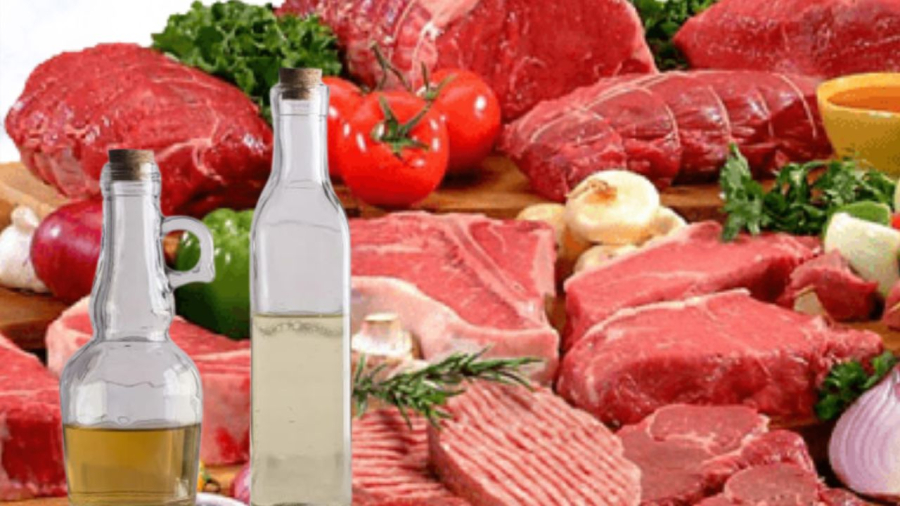In restaurant kitchens, there are always large bottles of vinegar. Vinegar is not only used for seasoning but also in the pre-processing of food ingredients. Vinegar is essential for use in dishes. And below are the experiences of many chefs in restaurants who often use vinegar.
Vinegar helps thaw faster
When meat is stored in the freezer, if you want to thaw it faster, add vinegar water to the meat. Vinegar helps thaw faster because the acid in vinegar lowers the freezing point of water, making the meat thaw faster. This method applies to all meat products such as pork, beef, and even frozen chicken and fish.

Neutralize the odor of meat and the freezer
Vinegar not only helps thaw faster but also makes the meat more tender and eliminates the odor in the freezer. Meat stored for a long time often has an unpleasant smell compared to when it was first purchased, so using vinegar also helps eliminate this smell to make the meat return to a more natural smell. Using vinegar also makes the meat softer when cooking.
Vinegar preserves meat freshness
Meat is rich in protein, so it quickly becomes spoiled when exposed to bacteria. Using vinegar helps preserve meat freshness for a longer time.
Furthermore, vinegar can be used in many cooking tasks to make your food taste better. Besides being a seasoning in sour dishes, salads, and dipping sauces, vinegar also has many other uses such as:
Vinegar enhances rice flavor
Adding a few drops of vinegar to the rice pot when cooking rice helps make the rice whiter, more fragrant, and tastier. Vinegar also helps make the rice soft, fluffy, and easier to stir. Rice with vinegar also helps preserve its freshness longer than usual.
Vinegar is used to clean strong-smelling foods
Vinegar is also used to clean other strong-smelling foods such as fish, shrimp, intestines, and organs to help eliminate their strong odor better. When you cook a lot of food and feel your hands are greasy and smelly, using vinegar to wash them also helps clean better.
Add vinegar to boiled eggs
Adding a few drops of vinegar to the boiling water before boiling eggs also helps prevent the eggs from cracking and makes it easier to peel them without sticking to the shell.
Add vinegar to fish stew for a more fragrant and firm fish
When stewing fish, you can add a little vinegar to reduce its fishy smell and make the finished product have firmer meat and bones faster.



































